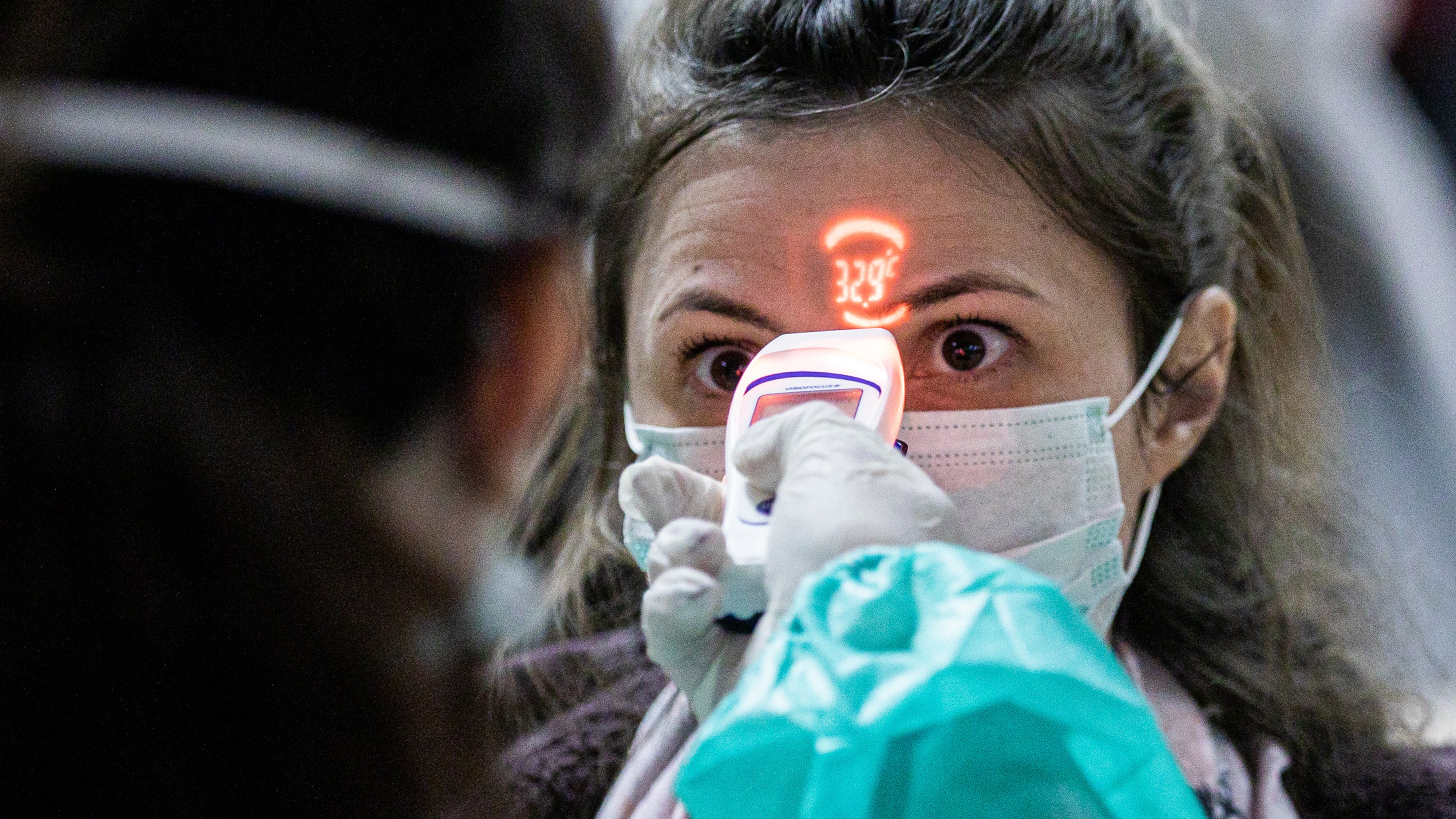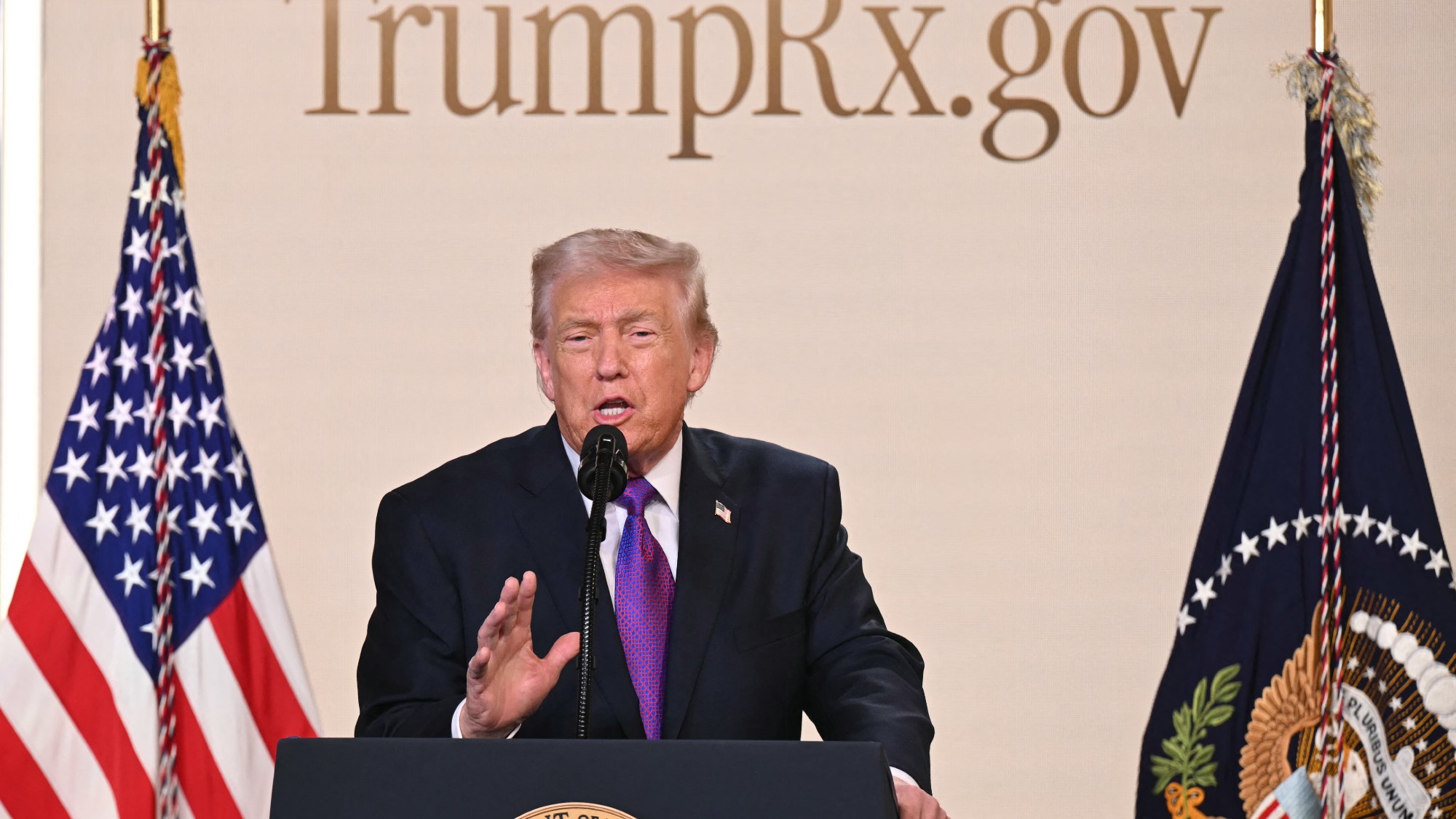Coronavirus travel advice: should you cancel your holiday?
UK government is warning against visits to Italy

A free daily email with the biggest news stories of the day – and the best features from TheWeek.com
You are now subscribed
Your newsletter sign-up was successful
The Italian authorities have extended emergency quarantine measures to the whole of the country as the coronavirus outbreak worsens.
Travel is restricted for anyone who does not have valid permission issued for medical or work reasons. All sporting events have been cancelled and schools and universities remain closed.
The Independent estimates that 30,000 to 40,000 UK holidaymakers and business visitors are currently in Italy during this “unprecedented closure of a major European country”.
The Week
Escape your echo chamber. Get the facts behind the news, plus analysis from multiple perspectives.

Sign up for The Week's Free Newsletters
From our morning news briefing to a weekly Good News Newsletter, get the best of The Week delivered directly to your inbox.
From our morning news briefing to a weekly Good News Newsletter, get the best of The Week delivered directly to your inbox.
Spain, another popular travel destination for Britons, has also seen a steep rise in coronavirus cases. So what is the advice if you have a holiday booked in 2020?
Which countries should be avoided?
The UK Foreign Office is advising against all travel to the Chinese province of Hubei, the epicentre of the global outbreak, and against all but essential travel to the rest of mainland China. “If you’re in China and able to leave, you should do so,” says the FCO website.
The government department is also advising against all travel to the cities of Daegu, Cheongdo and Gyeongsan in South Korea.
A free daily email with the biggest news stories of the day – and the best features from TheWeek.com
And in a statement released on Monday, the FCO said: “We have amended our travel advice to recommend against all but essential travel to Italy.”
The “all but essential” caveat is causing difficulty for many people with holidays booked, who may need the government to issue a total ban in order to get travel insurance payouts.
Carolyn Spinks, chief executive of the Association of British Travel Operators to Italy (ABTOI), told The Guardian that tour operators felt it would be “helpful if the FCO put its money where its mouth was” by warning against all travel to areas affected by coronavirus, without qualification.
The FCO is not currently advising against travel to any other countries or territories as a result of the coronavirus outbreak.
Who may need to self-isolate after returning from abroad?
The UK government is advising anyone who has travelled to the UK from the places listed below in the last 14 days to “stay indoors and avoid contact with other people”, even if they do not have symptoms:
- Iran
- Hubei province in China
- Italy
- Special care zones in South Korea (Daegu, Cheongdo, Gyeongsan)
Travellers should also stay indoors and avoid contact with other people if they have visited any of these places in the last 14 days and have a cough, a temperature, or any shortness of breath, even if symptoms are mild:
- mainland China outside of Hubei province
- South Korea outside of the special care zones
- Cambodia
- Hong Kong
- Japan
- Laos
- Macau
- Malaysia
- Myanmar
- Singapore
- Taiwan
- Thailand
- Vietnam
Anyone with symptoms should call 111 or use the online 111 coronavirus service. Do not go to a GP surgery, pharmacy or hospital.
Will you be allowed into your holiday destination?
Some countries are banning entry to travellers who have visited mainland China, Iran, South Korea or Italy within 14 days of their arrival, says travel association ABTA.
The following countries have issued some degree of entry ban on Chinese nationals or recent visitors to China: Australia, India, Iraq, Indonesia, Italy, Japan, Kazakhstan, Kuwait, Malaysia, the Maldives, Micronesia, Mongolia, New Zealand, Philippines, Russia, Singapore, Sri Lanka, Taiwan, Turkey, the US, Vietnam, Samoa, North Korea, the Czech Republic, and most of the Schengen area.
The following countries have issued some degree of entry ban on recent visitors to Italy: India, El Salvador, Israel and North Korea. Malaysia, Singapore and Indonesia have banned visitors who have recently been to North Italy.
And these countries have issued some degree of entry ban on recent visitors to South Korea: Australia, El Salvador, India, Japan, North Korea, Papua New Guinea, Singapore. Indonesia, Japan, Taiwan and Vietnam are insisting on a two-week quarantine period for arrivals from some parts of South Korea.
Moldova has banned all foreigners from entering by plane from any country affected by the coronavirus.
Some airports, including in the US, have increased passenger screenings, meaning any travellers might face temperature checks and health assessments.
Is plane travel safe?
Although it is commonly believed that people are more likely to become ill on an aeroplane, because they are breathing in “old” air, this theory isn’t supported by the science.
Qingyan Chen, a professor of mechanical engineering at Indiana-based Purdue University, says that air on aeroplanes is completely replaced every two to three minutes, compared with every ten to 23 minutes in a typical air-conditioned building, reports the BBC.
The air on a plane is cleaned by a high-efficiency particulate air filter (Hepa), a system that “can capture smaller particles than ordinary air-conditioning systems, including viruses”, says the broadcaster.
And the surfaces touched on a plane are no more likely to carry diseases than those elsewhere in day-to-day life.
In a 2018 study at Emory University in Atlanta, biostatistician Vicki Hertzberg took samples from surfaces on ten transcontinental flights and found that they “looked like your living room” - that is, they weren’t any worse than samples taken from normal buildings and on other modes of transport.
However, on a plane you are sitting in closer proximity to others.
World Health Organization guidance is that passengers sitting up to two rows away from an infected person are at risk of contracting their infection.
But according to a 2003 study published in the New England Journal of Medicine in the wake of the Sars outbreak, research into the spread of that virus from an infected patient on a plane found that 45% of the other passengers who caught the infection from them had been outside the two-row buffer.
The UK government is not advising against plane travel - just travel to the areas outlined above.
Cruise ships - where people are in a confined space for a long time, and air conditioning systems do not filter air as robustly - are a bigger concern.
Trains (underground and overground) and buses also greatly increase the likelihood of coming in close proximity with others.
NHS guidance defines “close contact” as being within two metres of an infected person for more than 15 minutes. Transport for London has previously estimated that the mean journey time in London is 47 minutes, in response to an FOI request.
A 2018 study published in the journal Environmental Health found that people who regularly used the London Underground were more likely to suffer flu-like symptoms than those who did not.
–––––––––––––––––––––––––––––––For a round-up of the most important stories from around the world - and a concise, refreshing and balanced take on the week’s news agenda - try The Week magazine. Start your trial subscription today –––––––––––––––––––––––––––––––
What other preventative measures can be taken?
Everyone is being advised to wash their hands thoroughly before eating, after going to the toilet, and after spending time in public places or on public transport. Wash hands with soap and water for a minimum of 20 seconds, and use hand-sanitiser if soap and water aren’t available.
Use a tissue for coughs and sneezes, or if unavailable, the inside of the elbow.
Avoid touching the face, specifically the eyes, nose and mouth, with unwashed hands.
Avoid contact with people who feel unwell or may have any of the symptoms of coronavirus, such a dry cough, fever, muscle ache or breathing difficulties. If you have these symptoms and have recently been to an affected region - or have been close to someone who has - call 111.
Do not go to a GP or hospital if you have these symptoms.
-
 Climate change is creating more dangerous avalanches
Climate change is creating more dangerous avalanchesThe Explainer Several major ones have recently occurred
-
 What’s TrumpRx and who is it for?
What’s TrumpRx and who is it for?The Explainer The new drug-pricing site is designed to help uninsured Americans
-
 ‘If you’re confused, you’re not the only one’
‘If you’re confused, you’re not the only one’Instant Opinion Opinion, comment and editorials of the day
-
 Epstein files topple law CEO, roil UK government
Epstein files topple law CEO, roil UK governmentSpeed Read Peter Mandelson, Britain’s former ambassador to the US, is caught up in the scandal
-
 Iran and US prepare to meet after skirmishes
Iran and US prepare to meet after skirmishesSpeed Read The incident comes amid heightened tensions in the Middle East
-
 Israel retrieves final hostage’s body from Gaza
Israel retrieves final hostage’s body from GazaSpeed Read The 24-year-old police officer was killed during the initial Hamas attack
-
 China’s Xi targets top general in growing purge
China’s Xi targets top general in growing purgeSpeed Read Zhang Youxia is being investigated over ‘grave violations’ of the law
-
 Panama and Canada are negotiating over a crucial copper mine
Panama and Canada are negotiating over a crucial copper mineIn the Spotlight Panama is set to make a final decision on the mine this summer
-
 Why Greenland’s natural resources are nearly impossible to mine
Why Greenland’s natural resources are nearly impossible to mineThe Explainer The country’s natural landscape makes the task extremely difficult
-
 Iran cuts internet as protests escalate
Iran cuts internet as protests escalateSpeed Reada Government buildings across the country have been set on fire
-
 US nabs ‘shadow’ tanker claimed by Russia
US nabs ‘shadow’ tanker claimed by RussiaSpeed Read The ship was one of two vessels seized by the US military